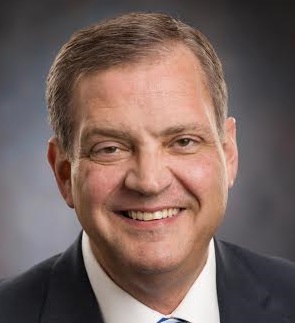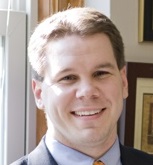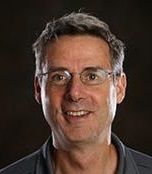By Bob Allen
Many Christians who affirm the inerrancy and authority of the Bible don’t think it is sufficient to handle problems in their life, according to speakers at a recent conference on biblical counseling at Southern Baptist Theological Seminary in Louisville, Ky.
Seminary President Albert Mohler opened the Sept. 18-19 Counsel the Word conference describing the sufficiency of Scripture as both “one of the most radical theological or doctrinal affirmations imaginable” and an antidote to a “therapeutic revolution” with its non-judgmental approach toward psychological distress that is rooted in sin.
 “The therapeutic revolution came with the promise that whatever is wrong with us is something that happened to us, something for which some therapeutic intervention is almost assuredly necessary and possible,” Mohler said.
“The therapeutic revolution came with the promise that whatever is wrong with us is something that happened to us, something for which some therapeutic intervention is almost assuredly necessary and possible,” Mohler said.
Mohler said the notion that “liberation comes by means of authority” is one of the central affirmations of the 20th century, describing Sigmund Freud, the founder of psychoanalysis, as “one of the four horsemen of modernity.”
Mohler said Freudians — whether they identify by the title or not — “think of themselves as victims, and they assume that whatever is wrong with us is something that can be addressed by some kind of therapeutic intervention, whether it be psychotherapy, some kind of psychiatric or psychological treatment, a drug, some kind of therapeutic intervention.”
Mohler said the “biblical counseling movement” is an attempt to apply the affirmation of the sufficiency of Scripture to matters of physiology and biology that “biblically we would describe as psychology.”
In 2005 Mohler announced “wholesale change” in the flagship seminary of the Southern Baptist Convention’s approach to training ministers in how to deal with the needs of hurting parishioners.
After decades of integrating secular psychology and biblical training in a course of study pioneered by longtime Southern Seminary Professor Wayne Oates known as “pastoral care,” Mohler renamed the master of divinity track “biblical counseling,” affirming the idea that the Bible alone is sufficient to answer “the deepest needs of the human heart.”
 Heath Lambert, assistant professor of biblical counseling at Southern Seminary and its Boyce College, co-edited a book in 2012 titled Counseling the Hard Cases, compiling accounts of Scripture having helped people overcome conditions like bipolar disorder, postpartum depression, panic attacks, addiction, issues from childhood sexual abuse and homosexuality.
Heath Lambert, assistant professor of biblical counseling at Southern Seminary and its Boyce College, co-edited a book in 2012 titled Counseling the Hard Cases, compiling accounts of Scripture having helped people overcome conditions like bipolar disorder, postpartum depression, panic attacks, addiction, issues from childhood sexual abuse and homosexuality.
Lambert said at the conference that criticism from secular psychology that there are a lot of things about medicine the Scripture doesn’t address is correct, but it misses the point. While the Bible doesn’t speak about how neurons work or the brain synthesizes emotional information, Lambert said, it does address how to save a marriage or help someone struggling with addiction or anxiety.
“I don’t think the real issue is a defense of the sufficiency of Scripture,” Lambert said. “To be very honest with you, I’m somewhat frustrated that we have to regularly defend the sufficiency of Scripture. Because my beef, my question mark, is not the sufficiency of Scripture. My question mark is the sufficiency of psychology…. How did we ever decide that psychology was a meaningful response to problems in living?”
Lambert said even when secular counseling “seems to work,” it falls short because it “never gives people a word from God.”
“Even when things seem to work, they never give the kind of change that people need to honor Jesus,” he said. “It’ll never happen. So we counsel a sufficient word.”
Lambert, executive director of the Association of Certified Biblical Counselors, said the sufficiency of Scripture doesn’t mean than anyone with a Bible can be a good counselor. He said incidents of well-meaning but uninformed practitioners counseling people to stop taking psychotropic drugs and rely solely on Bible study and prayer have given the biblical counseling movement a bad name.
In a panel discussion, Lambert described medication as a “gray area” for biblical counseling.
“As everybody knows — they know this at Harvard, they know this at Yale, they know this at UCLA — what we know about specifically psychiatric medication is less than what we know about amoxicillin, for example,” Lambert said. “We understand less about how it works. We understand less about the problems that contribute to it.”
“The other part of the question mark is we’re aware that we do live in a therapeutic culture that wants to medicate sin and suffering in a way that Jesus wants to,” he continued. “Jesus is our redeemer, not medications.”
Lambert said the key question to ask is, “Am I medically treating something that isn’t a medical issue?”
“If you treat a spiritual issue with medicine, then it won’t help,” he said. “And that’s true for the same reason the health-and-wealth prosperity gospel isn’t true. You can’t assume and presume that every physical problem can be treated spiritually.”
Lambert said his advice to a Christian in counseling who feels guilty about taking medicine is “trust your physician.”
“If you went to your trusted medical adviser, in this case a physician, and they said I want to put you on some medication, you are doing what you should do,” he said. “And if we become concerned that maybe some of the things that the physician intended the medicine to treat, if we become concerned that those are things the Bible talks about as things in need of repentance or the comfort of Jesus or something like that, we’ll sort that out when we get to it.”
 Garrett Higbee, executive director of Harvest Bible Chapel’s Biblical Soul Care Ministries in Chicago, said in a breakout session that is true in cases involving bipolar disorder. Higbee, who worked as a secular psychologist prior to accepting Christ, said he agrees with secular therapies to a point, but Christian counseling offers more.
Garrett Higbee, executive director of Harvest Bible Chapel’s Biblical Soul Care Ministries in Chicago, said in a breakout session that is true in cases involving bipolar disorder. Higbee, who worked as a secular psychologist prior to accepting Christ, said he agrees with secular therapies to a point, but Christian counseling offers more.
“Our goal isn’t symptom-reduction,” he said. “That might be a byproduct, but it’s not our goal. Our goal isn’t coping skills. Our goal isn’t that they’d have a lifelong sentence to a debilitating disease. Our goal is not dependency on medication and therapy the rest of their life.”
“We’re going for heart change, transformation of who they are and how they worship and how they see themselves, see God and see others,” Higbee said. “We’re going for a renewed mind that can counsel itself biblically.”
